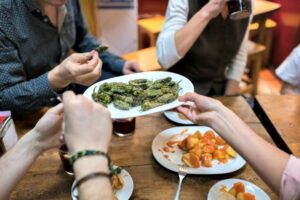Last Updated on March 4, 2020 by Devour Tours | Published: March 4, 2020
At the heart of the Basque Country’s famous cuisine beat the many gastronomic societies—the mysterious birthplaces for many typical Basque dishes.
Eating well and the importance of food have been an inseparable part of Basque identity for as long as we can remember. There are many secrets, traditions and rituals related to the gastronomy here, including a very unique and special concept that only exists in the Basque Country.
Txokos or elkarteak—gastronomic societies, or the Basque version of a private dinner club—are the hidden places where Basque gastronomic magic has happened for more than 150 years.
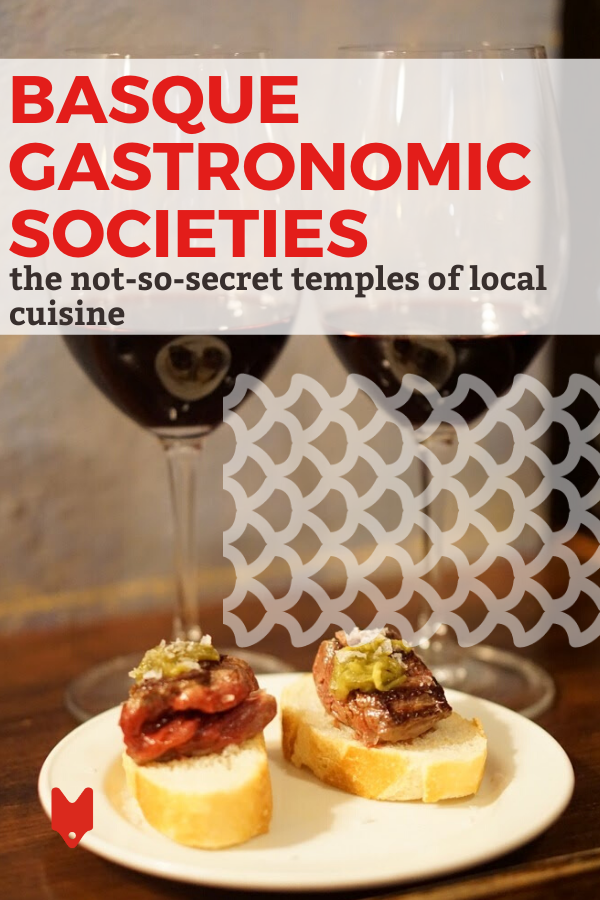
Txokos of the Basque Country
When you ask locals in San Sebastian about their weekend plans, you’ll find that many of them will meet up with their cuadrilla, or group of best friends, to cook lunch or dinner at a gastronomic society.
These societies are typically places “de toda la vida,” meaning that a lot of times, the same members have always been there and they all know each other. Most of the txokos are for members only, meaning that the doors normally stay closed for passersby, but as a member you can invite anyone you feel like cooking with.
Despite all the exclusiveness, gastronomic societies are not a rare phenomenon—in the Basque Country, there are more than 1,300 registered gastronomic societies in total, all contributing to the development of refined Basque cuisine.
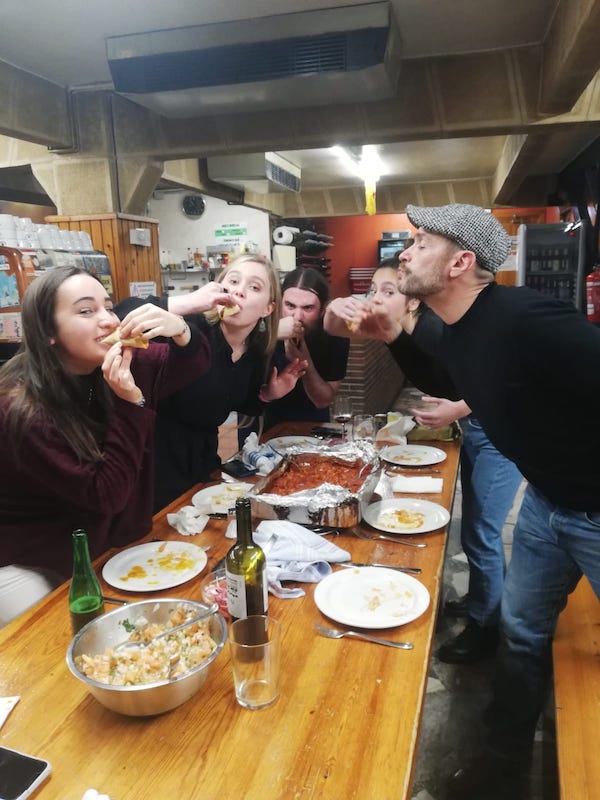
Long Traditions
The tradition of the gastronomic societies started around the midst of the 19th century and the first official record of a txoko in San Sebastian dates back to the year 1870. This is when the societies were known as spaces exclusively dedicated to cooking, eating and socializing—but the tradition of eating and spending time together dates even further back in time.
In the beginning, the txokos were, and some of them still are, all-male—a place where men could cook together on their own terms, while exchanging news and talking about politics. These days, more and more societies have opened their doors to women too, but in many places they’ve kept the tradition of cooking only for men—no ladies needed in the kitchen!
Txokos have played an important role in Basque history. During Franco’s dictatorship from 1939 to 1975, gastronomic societies—thanks to their closed doors and privacy—were one of the few places where Basque people could speak euskara, the Basque language, since Franco forbade the language or any other activity related to Basque culture.
A Peek Inside a Society
Despite all the mystery around these private societies, at the end of the day most of them are everyday venues for locals. For many of them, a dinner in a society with their cuadrilla is no bigger deal than a normal way of spending a Friday or Saturday with their friends.
Martin Larrea Albisu, a guide here at Devour Tours and a member of a gastronomic society, tells us that almost every Friday he meets up with a group of four or five of his closest friends to cook dinner together at his society in San Sebastian.
“Normally we prepare some appetizers and we chat and drink some wine while I cook the main course. Later on, after dinner, we prepare mixed drinks or pour pacharán in our glasses while we talk about what we did during the week or discuss politics,” he said.
Normally societies have a big industrial-like kitchen, but there’s neither a chef nor any kind of staff working. The idea is that the members and their invitees bring the ingredients for the night’s dinner and cooking together is part of the deal—without forgetting the socializing, which plays an equally important part!
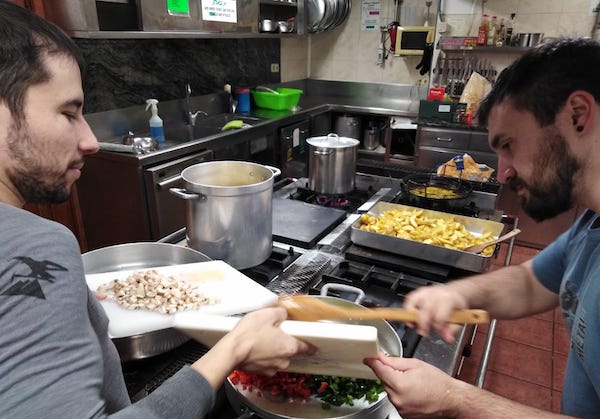
Cradles of Basque Cuisine
What’s typically on the menu in a gastronomic society? There isn’t one correct answer to that—it could be anything that the designated chef that night feels like.
In Martin’s case it’s often tortilla de patatas—Spanish potato omelette—and some fried green padrón peppers. Sometimes, when his friend Andrea feels like taking control in the kitchen, they feast on some delicious fideua, a paella-like dish where the rice is replaced with noodles.
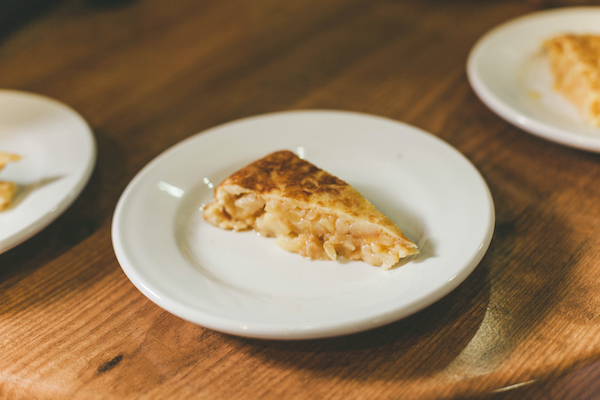
Many people like to cook their family specialties that they’re famous for—recipes that have been passed on from generation to generation. In fact, gastronomic societies are part of the reason (and a significant one!) for the evolution of the one-of-a-kind gastronomy that Basques are famous for.
Gastronomic societies rarely open their doors to outsiders, but keep your eyes open when visiting San Sebastian—maybe you’ll make friends with a local and get an invitation to one of the legendary txokos of the town. That’s a true local experience to seek out!


